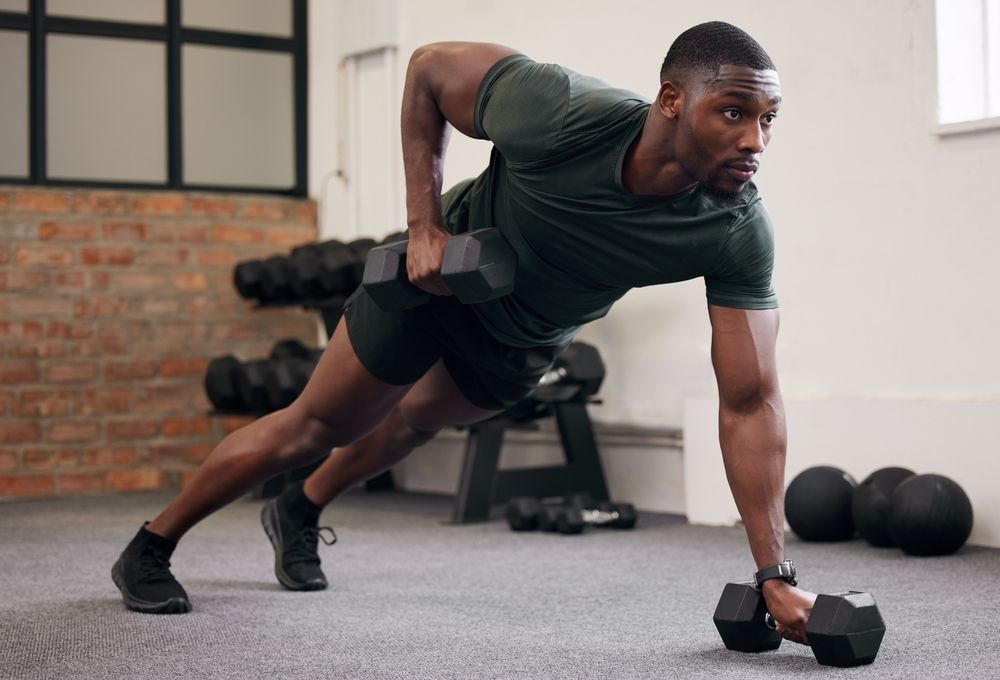
We all strive to improve our health and look our best. Establishing the right fitness routine is crucial for achieving these goals. Whether it involves cardiovascular activities like jogging, biking, or cross-training, or strength training with weights, bodyweight circuits, or kettlebells, a well-rounded routine is essential. However, not all fitness regimens are equally effective. To help you out, here are 10 signs your fitness routine isn't working and what you can do to address it.
Following an ineffective routine can lead to slower progress and unnecessary effort; in more extreme cases, it may result in injuries, fatigue, and a loss of motivation. While it can be challenging to recognize that your routine isn't working, the sooner you identify the issue, the better, as it allows you to make the necessary changes.
In this article, we'll explore the 10 most crucial signs that your fitness routine isn't delivering the results you deserve. Some of these signs are common, while others might be less obvious. Even if you've been training for years, you could still be making these mistakes.
We'll also provide practical advice for each sign on how to address it, helping you enhance your training program and see noticeable improvements in your body.
Let's dive into the 10 signs your fitness routine isn't working and how to fix them.
1) You're Not Losing Fat

If your goal is to lose body fat, your fitness routine should be geared toward achieving that. Whether you're focusing on strength training or cardio, your exercises should help you burn calories and boost your metabolism. However, it's not ideal to rely solely on the scale to track your progress, as your weight can fluctuate daily due to factors like food intake and water retention. Instead, measure your body fat each month using calipers or other tools.
If you notice that your body fat percentage isn't decreasing, it's a clear sign that your routine may not be effective. To address this, challenge your body with strength training and gradually increase the resistance you use; don't just spend endless hours on cardio. Also, ensure you're going to the gym often enough. Sometimes, adding an extra workout per week can make a significant difference in your progress.
2) You're not losing weight.

As mentioned earlier, relying solely on the scale isn't the best way to track progress. However, if you're obese or overweight, you should see some reduction in your weight to gauge success.
In this case, carefully examine your training routine and diet. Many people underestimate their calorie intake—even something as small as an extra tablespoon of oil at each meal can add up, but it often goes unnoticed. To address this, I recommend keeping a food diary and tracking everything you eat and drink for three to four days. This can help identify any hidden calorie sources, allowing you to make necessary adjustments and continue progressing.
3) You're Not Gaining Strength

When engaging in resistance training—whether using dumbbells, barbells, kettlebells, or bodyweight exercises—you should naturally see gains in strength. If you notice that your strength hasn't improved, it's a clear sign that something in your routine isn't effective.
To address this, gradually increase the weight or resistance with each exercise. For example, if you're doing squats with a 20-pound dumbbell, try increasing the weight to 25 pounds the next week and then 30 pounds the following week. This progression challenges your muscles, joints, and tendons to adapt and grow stronger.
However, if you're an experienced lifter and find it difficult to increase the weight of your exercises, you might be overtraining, preventing your body from fully recovering. In this case, reduce the weights and sets by about 30% for a week, allowing your body time to recover. Then, resume your normal training routine the following week.
4) You don't do recovery.

Recently, there's been a trend in fitness toward high-intensity workouts. The focus is often on pushing yourself to the limit, reaching the highest possible heart rates, and maintaining them for extended periods. However, this approach can be very stressful on the body, and the more stress you put on it, the more recovery time it needs.
If you don't incorporate recovery into your fitness routine, it will always be less effective. Over time, neglecting recovery can lead to exhaustion, injuries, pain, and other issues. Instead, make sure to dedicate at least one day a week to rest and recovery. This could include a relaxing walk, bike ride, or swim, which can help reset both your body and mind. Additionally, it's crucial to recover after each workout by staying hydrated and consuming a protein-rich meal to aid muscle repair.
5) Your endurance isn't improving.

When you first start training, you'll notice an increase in the endurance of your muscles and cardiovascular system. However, as you continue, these improvements may become less noticeable. It's crucial to keep progressing in your conditioning, as it offers numerous benefits both in and out of the gym.
If you're not seeing improvements in your endurance and still feel fatigued toward the end of your workout, run, hike, swim, or other activities, it's a clear indicator that something needs to change. Consider spending less time on high-intensity exercises and more on low-intensity training to enhance your aerobic system. Additionally, make sure to take at least one to two rest days each week to allow your body to recover properly.
6) You're getting bored.

Let's be clear: A good fitness routine will have some repetition. You can't do a brand-new workout every time because consistency is key to seeing progress. It's important to repeat the same exercises for several weeks to master the movements, increase resistance, and improve. Even if it feels repetitive, you're still challenging yourself each time to make progress.
However, you shouldn't feel bored. It's crucial to change up your training every four to six weeks to learn new movements and challenge your body in different ways. Alternatively, consider hiring a coach to design a program for you, ensuring you're not just sticking to exercises you enjoy and avoiding those you don't.
7) You're Always Sore

Contrary to popular belief, you shouldn't feel extremely sore after every workout. In fact, as you become more fit, you'll generally experience less soreness. While occasional intense sessions can cause soreness, this shouldn't be a regular occurrence. If you find yourself feeling worn out the day after every workout, it's a sign that you're overdoing it.
To address this, start by reducing the volume of your training. For instance, cut down the number of sets you perform by at least 30%. As long as you're lifting heavy weights, this should still be sufficient for making progress. If you're still experiencing soreness, consider taking a complete break for a week, then return to the gym. Often, a short rest period can leave you feeling stronger when you return.
8) You're getting hurt.

The ultimate goal of going to the gym is to feel good. However, for many people, the gym becomes a source of pain. They may train and end up tweaking a muscle or experiencing joint pain, yet they continue to push through it, mistakenly believing in the mantra "no pain, no gain."
A good training program should not lead to injuries; instead, it should reduce your risk of injury and alleviate pain by ensuring you're training your body correctly and safely.
If you frequently experience aches and pains, take a closer look at your routine. Are you performing exercises incorrectly? Are you attempting exercises that might be unsuitable due to a lack of mobility or experience? Are you properly warming up beforehand and stretching afterward? Are you giving yourself enough time to recover during the week? All of these factors play a significant role in preventing discomfort and injuries.
9) You're losing motivation.

Even with the best intentions, it's normal to lose motivation sometimes. You might not be seeing the results you want, or perhaps you'd rather stay home and watch TV than head to the gym.
These feelings are completely natural and part of being human. There's no need to feel guilty for taking a break. A good fitness routine is flexible and accommodates your needs. It's okay to take an extra day off to relax and enjoy yourself, perhaps with some good food and drinks, and then return to your routine the next day without any guilt.
10) No one notices.

If no one notices that you've been exercising, it might be a sign that your fitness routine isn't effective. For instance, if you tell your family you've started working out and they respond with a skeptical "Really?" it's a clear indication that your current routine might not be delivering the results you want.
While fitness is a personal journey, if your efforts aren't visibly paying off, it might be time to seek expert advice. It's easy to think you can figure everything out on your own or find all the information online, but consulting a professional for a few months can save you years of wasted effort and help you achieve better results.

